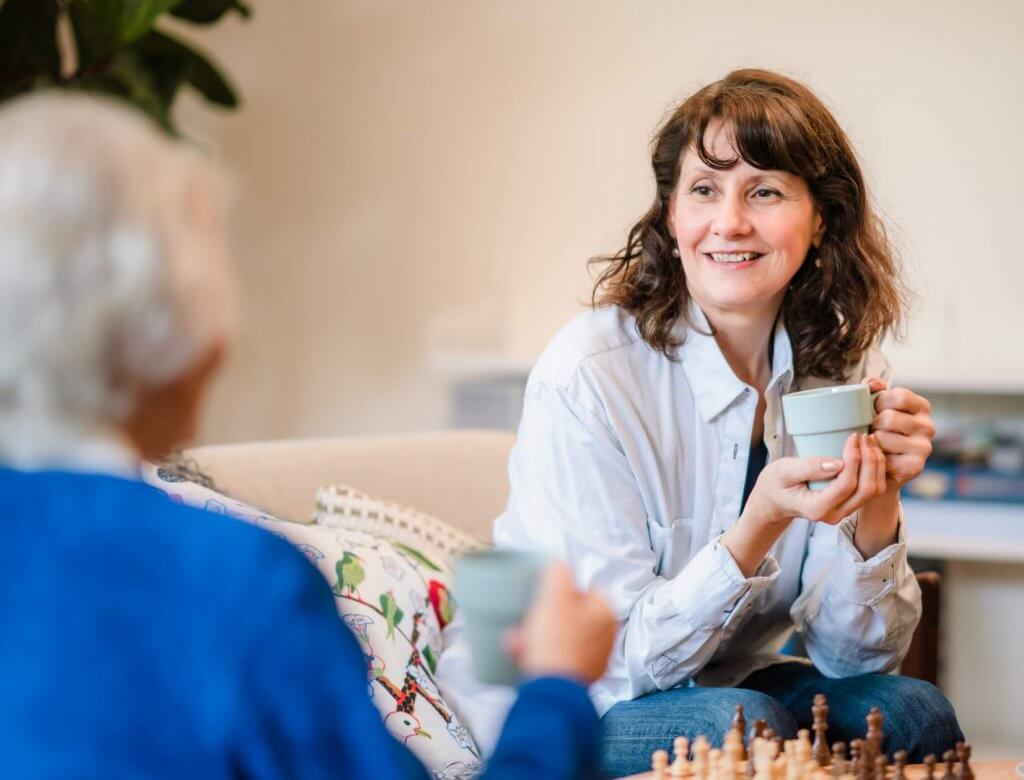Living with somebody with cancer – the dos and don’ts

It’s not just medical professionals that get people through the challenges of cancer. Family members and loved ones shouldn’t underestimate the source of support and comfort they can be.
Living with somebody who has received a cancer diagnosis, it can feel like you’re living through the experience with them. Naturally, you want to help. But don’t forget that your loved one is more than a hospital patient; they’re a human being that feels all of the positive and negative emotions they always have done.
They want your support. But equally, they want to escape from a life of constant hospital appointments and worry. They key is to find a balance and get an understanding of what support means to them.
What you should do
- Understand how involved you should be: Maybe your loved one wants you to keep track of appointments and attend them with you. Perhaps they simply want you to lend and ear and give a loving hug before bedtime. Ask them how much support they want and remember that this might vary during the course of their treatment.
- Carry out research: If you know the details of their diagnosis and treatment, it saves them having to explain it to you in so much depth. Look up how the cancer has affected their body, how that might change their everyday behaviour and what the treatment they are going through aims to achieve.
- Maintain an open line of communication: If your loved one is happy for you to, get to know their care team and healthcare professionals. And ensure that you have means to communicate with the whole family. If everyone is aligned, people a more likely to get updated as soon as there is any news.
- Understand their tiredness: Living with cancer can give you severe fatigue. If your loved one doesn’t have the energy they once had, be patient and understand that there will be days when they will be working at a slower pace.
- Be authentic: Stay as the loved one you were before the diagnosis. Do the things you have always enjoyed together, whether it’s watching a TV show or eating a meal that you both enjoy. It will give them a life outside of the health challenge they’re facing.

What you shouldn’t do
- Make comparisons: Everyone’s experience with cancer is different and there’s no blueprint on how to cope. By comparing your loved one’s situation to somebody else’s could put pressure on them to act a certain way. It might also make them feel like they have failed if their condition hasn’t improved as quickly. Simply focus on their experience with cancer and nobody else’s.
- Use clichés: Phrases like ‘stay strong’ are rarely a source of comfort. Supportive words should be meaningful. They’re your loved one, so you will know what gives them encouragement. If they’re a pragmatic person, it might help to discuss with them their treatment and how it will help. For somebody who is more emotional, a hug and a reminder of your love might be the best way to help them cope.
- Feel you need to fill every moment: Quiet moments help us all come to terms with trials and tribulations. Your loved one doesn’t always need to be distracted from cancer, nor do they always want to hear your support. Alone time will help them get through it, so remember to give them the space they need.
- Give too much sympathy: Whether we’re sick or in good health, we all want to be treated like human beings. That means not overdoing it with the sympathy you offer and avoiding treating them like a charity case. Make it so that at home they feel like more than just a hospital patient.
- Take things personally: Feelings of anger and frustration are common for people living with cancer. If you’re ever on the receiving end of an outburst, try not to take offence. Venting can help us get through challenging times, and by simply hearing a rant you can help somebody gain perspective and feel better.

Don’t think it’s a minefield trying to say and do the right thing as you support your loved one through this difficult time. Simply remember that they are only human and will feel a mixture of emotions. And don’t forget to give yourself credit. Together, you’re feeling the same stresses and worries, and just by being there for each other you can make the experience more bearable.Learn more about how we can support with cancer care at home and general companionship, or how you can become a Care Professional to help support others.